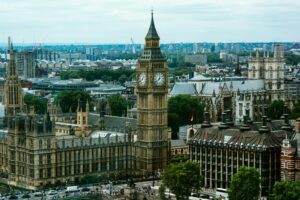Less on high speed rail, more on local services: what people want from public spend
 A new survey reveals the public prioritising neighbourhood services over national projects, as Paul O’Brien explains.
A new survey reveals the public prioritising neighbourhood services over national projects, as Paul O’Brien explains.
In Philip Hammond’s autumn statement, the headlines majored on the u-turn on debt repayments.
Pledging to balance the books ‘as early as possible’ in the next Parliament was a clear abandonment of Osborne’s flagship policy on debt. However, for local councils the funding announcements were far less dramatic. For a government committed to helping the so-called ‘jams’ (families who are ‘just about managing’), there was only an offer of ‘jam tomorrow’ for local councils.
While welcoming the spending commitments of £23bn for the new National Productivity Investment Fund, which will include further capital spending on housing and infrastructure projects, local council finances remain perilous.
Working with local government’s frontline services, the Association for Public Service Excellence (Apse) has seen first hand the impact of austerity on ‘neighbourhood services’; services like refuse, recycling, street lighting, street cleaning, pothole repairs, leisure and parks, services that residents interact with every day.
We ran a survey to find out how the public really perceives local neighbourhood services, and what they think of government spending priorities. We asked 1500 members of the public their views on how public money is being spent.
According to our survey, a staggering 77% would like the government to give more money to local councils to spend at a local level, whilst 62% do not think that enough of their tax is spent on services in their local area. So, while the chancellor is concentrating resources on national infrastructure projects, the public want to see more going directly to local areas.
 The service where local people most want to see additional spending is road maintenance. We asked the public to allocate a notional budget across nine different local council services, and road maintenance scored 50% more than any other area. This correlated to the lower rate of satisfaction in roads compared to other neighbourhood services showing that, though residents are satisfied with local services, it is really a case of ‘only just’ when it comes to our roads.
The service where local people most want to see additional spending is road maintenance. We asked the public to allocate a notional budget across nine different local council services, and road maintenance scored 50% more than any other area. This correlated to the lower rate of satisfaction in roads compared to other neighbourhood services showing that, though residents are satisfied with local services, it is really a case of ‘only just’ when it comes to our roads.
There is also the question of who local people trust to spend this money. Our survey found that people are eight times more likely to trust local councillors to make decisions on their behalf, over and above MPs, and well above government ministers. Further, local people trust councils five times more than they trust the government. There is also greater trust in council-run services, with the public six times more likely to trust council-run services over private contractors.
So, what is happening to resources at a local level? Seismic changes to local government finance, where councils are increasingly reliant on business rates and council tax, show that we need our local economies to attract new businesses and new residents to local areas. Ultimately, it is of little use to local councils to have super-fast trains, when commuters then spill onto local roads that are no longer fit for purpose. Equally, developers are unlikely to want to develop housing projects in areas where the public realm is in steep decline.
We believe that spend on neighbourhood services should be just as much a part of a new industrial strategy as the glittering national projects. The budget-setting priorities of local councils need to reflect the value that the public place on their local services, and what these services bring to local economic success. Neighbourhood services are part of the means by which we attract inward investment and strengthen the resilience of our local economies.
In Apse’s view it really is time for a rethink on our local spending priorities.









